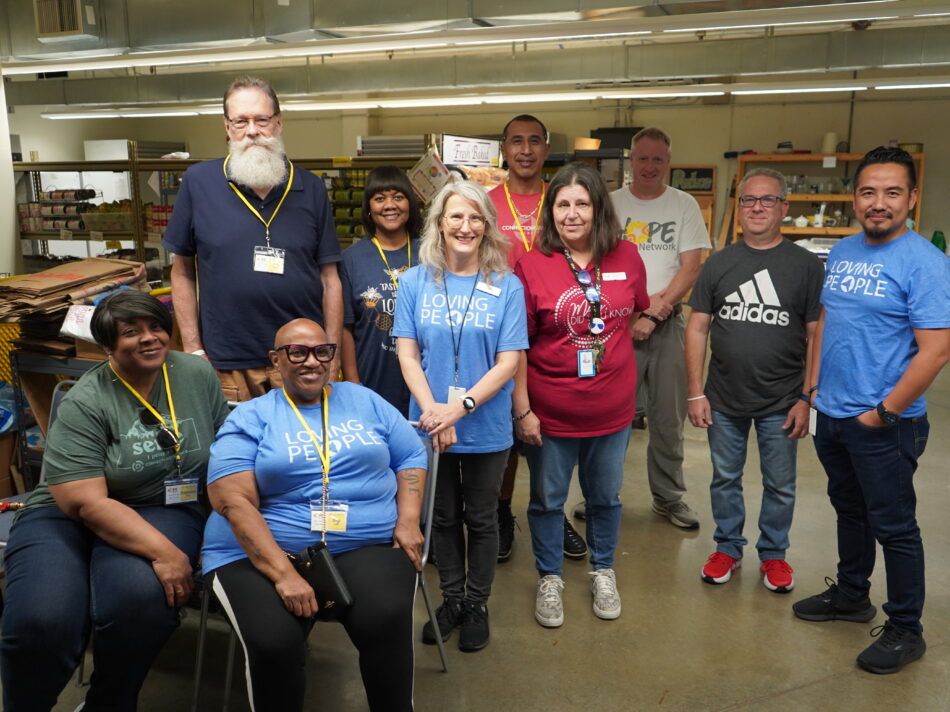
Raytown, Missouri, is a suburb of Kansas City known for its diversity, both racially and economically. Though the average income of households in Raytown is nearly $50,000, More than 11 percent of households in the city earn less than $300 per week.
Hope Network, an extension of Connection Point Church, was founded in 2006 as a dedicated effort to serve neighbors in Raytown that are struggling with food and economic insecurity. Originally a volunteer-run organization, they became incorporated as a 501c3 organization in 2008 and have steadily built up a wide array of wraparound services.
Hope Network’s services fall into three main program areas. The first is food programs, which includes the pantry stocked with a wide variety of items from every food group, as well as clothing for adults and children. The second is emergency assistance, where people can find help with rent, utilities and vehicle repair. And the third is a program called C2 Thrive, which exists to help meet the needs of families within the Raytown C2 School District. This includes help with school supplies and even mini scholarships to help give kids access to sports and arts opportunities.
In addition to in-house programs, Hope Network has a referral process to other agencies and is a member of MAACLink (a city-wide network of social service agencies operated by the Mid-America Assistance Coalition). For Jaque and her team, figuring out how to best serve their neighbors is all about developing relationships.
“So much of the time, at that first encounter that we have with people is through the food pantry, they’ll come in and express needs with food insecurities and various things,” says Jaque Nordhus, Hope Network’s Executive Director. “But through that conversation—through that connection—we also learn that they don’t have electricity. Last night I was helping a Spanish speaking family who came in and single mom’s power got cut and their gas got shut off. So, we’re working with them to try and get that turned back on.”
Harvesters partners with Hope Network by providing food, both perishable and nonperishable, for use in their pantry. The pantry is a neighbor choice model, which means that guests are free to choose items that are best for their household’s dietary needs and preferences. It is currently open three days a week: Tuesdays at 5 p.m., Wednesdays at 3 p.m., and Thursdays at 6 p.m.
Varying the time of day they are open allows them to serve a wider swath of the community, which according to Jaque, is one of their main priorities. She is passionate about breaking down the stigma of seeking food and economic assistance.
“They are you and me,” she said regarding the neighbors shopping in the pantry. “They are my dad and the nice lady that lives next door to me. They’re the people that are on the front lines working in medical offices, serving lunch to our kids at school. There is a huge diversity of people who are coming in.”
The Hope Network pantry runs like a well-oiled machine. It is highly organized, and the staff and volunteers are warm and inviting, eagerly willing to help find items or assist with the shopping experience. Even during the intake process, it’s evident that hospitality is at the center of Jaque and her team’s mission.
“My favorite thing about being in the pantry and welcoming people is just sitting with them and listening to them,” she says. “Or even on the phone when they call and they’re in crisis, you know? Just offering them some kind of hope and letting them know that, ‘Hey, you’ve got community here. You’ve got someone in your corner.’”
To learn more about Hope Network’ services and story, or to request assistance from one of their programs, click here.


